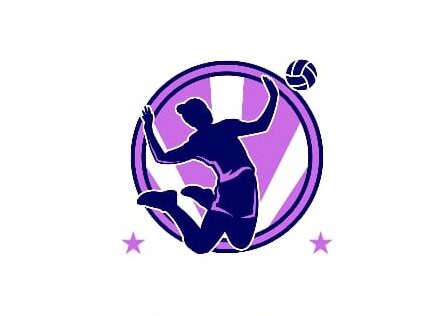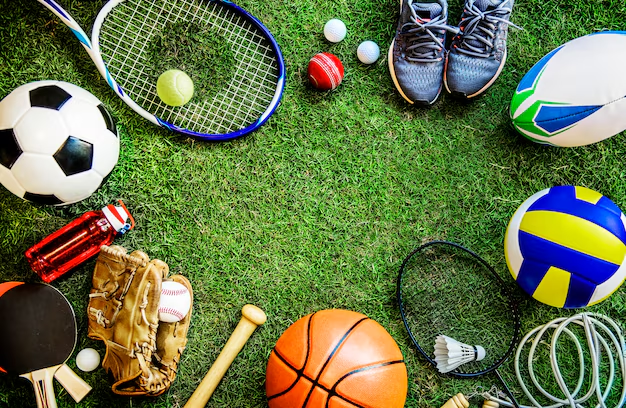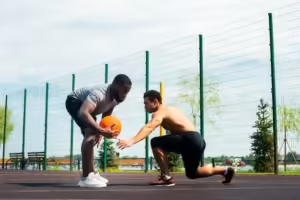Beating all sports requires more than just natural talent. It involves a combination of skill, strategy, training, and mental toughness that few athletes fully master. For those who seek to excel across a wide variety of sports, understanding the nuances of each discipline is key to long-term success. In this article, we’ll explore what it takes to truly “beat all sports” and share the strategies used by top athletes to dominate on the field, court, or track. “To truly beat all sports, an athlete must master the art of versatility, blending skills from various disciplines into one powerful package.” |
| 2. The Importance of Strategy in Sports
In every sport, strategy plays a critical role in determining success. Whether it’s outsmarting an opponent on the basketball court or employing a tactical game plan in soccer, knowing when and how to execute certain moves is often the difference between winning and losing. While talent gets you far, strategy ensures that you win consistently. Understanding the rules, weaknesses, and strengths of your opponents helps you gain the upper hand, no matter what sport you’re playing. Strategy also evolves with time, so staying adaptable is crucial for athletes aiming to “beat all sports.” |
| 3. vs. Mental Training
Most athletes focus on physical conditioning—strength, speed, and endurance. But what separates the best from the rest is their mental preparation. Mental toughness, focus, and the ability to adapt to stressful situations are just as important as physical prowess. For an athlete aiming to excel in multiple sports, the balance between mental and physical training becomes even more important. While the body performs, it’s the mind that controls it, helping athletes push past limitations and reach new heights. Training the mind is about building resilience and staying focused in the face of challenges. |
| 4. Nutrition for Peak Performance |
What you put into your body is directly related to how well you perform, regardless of the sport. An athlete’s diet should provide enough energy, repair muscles, and aid in recovery after intense training sessions. Athletes looking to “beat all sports” should pay particular attention to nutrition, as each sport may have slightly different dietary requirements. Carbohydrates fuel endurance, protein aids muscle repair, and fats provide long-lasting energy. A well-rounded diet ensures peak performance across all disciplines. Whether you’re playing soccer, tennis, or basketball, optimal nutrition plays a vital role in maintaining peak condition. |
| 5. Beating All Sports: What It Means |
To “beat all sports” means excelling in a variety of athletic disciplines, not just one. It’s about mastering different skills, adapting to new challenges, and pushing the boundaries of your athletic potential. Athletes who beat all sports are versatile, capable of playing at a high level across different sports that require a wide range of skills. It’s not just about being the best in one sport, but being highly competitive in all. This level of versatility sets them apart from athletes who specialize in one area and allows them to stand out as true all-around competitors. |
| 6. Understanding Different Sports Disciplines |
Every sport has its own unique set of skills, rules, and strategies. To beat all sports, it’s essential to have a deep understanding of each discipline. For example, soccer focuses on stamina and teamwork, while tennis requires quick reflexes and precision. Meanwhile, sports like swimming demand a combination of endurance and technical form. By recognizing these differences, athletes can adapt their training programs to develop the necessary skills for each sport. This understanding is critical for athletes who want to achieve high performance across multiple disciplines. |
| 7. Enhancing Athletic Skills for Any Sport |
While each sport may require specific skills, there are universal athletic abilities that are beneficial across the board. Speed, agility, balance, hand-eye coordination, and reaction time are just a few of the key traits that athletes should develop if they want to beat all sports. Plyometric exercises, agility drills, and strength training can all help enhance these fundamental skills. Improving athleticism in one sport often carries over to others, allowing for better performance across the board. Regularly training in these areas ensures that you are always prepared for the physical demands of different sports surge.
| 8. Developing Versatility as an Athlete
| One of the hallmarks of an athlete who can beat all sports is their versatility. This means being able to quickly learn new skills, adapt to different play styles, and transition seamlessly between different sports. Versatility is a crucial asset because it enables athletes to compete in a wide range of sports, from high-contact games like rugby to finesse sports like golf. To develop versatility, athletes should engage in cross-training, which allows them to acquire a diverse set of skills and avoid the burnout that comes with focusing on just one sport. |
| 9. Cross-Training: A Secret Weapon
| Cross-training is when athletes train in multiple sports to improve their overall athleticism. It’s a key tactic for those who want to beat all sports because it helps develop well-rounded physical capabilities. For example, swimmers might take up running to improve their cardiovascular endurance, or basketball players might try gymnastics to improve balance and flexibility. Cross-training also prevents overuse injuries by reducing the stress placed on the same muscles and joints over time. The more sports an athlete is exposed to, the more adaptable and skilled they become overall. |
| 10. Sports Psychology: The Key to a Winning Mindset |
Physical ability alone is not enough to beat all sports—you also need the right mindset. Sports psychology teaches athletes how to stay focused, overcome fear, and handle pressure in competitive environments. Whether you’re on the tennis court, the football field, or the track, a winning mindset helps you rise to the occasion and perform your best under any circumstances. Techniques like visualization, positive self-talk, and mindfulness can all enhance mental toughness and focus. The mental aspect of sports is often the key differentiator between good athletes and great ones. |
| 11. How to Stay Motivated Across Different Sports |
Staying motivated is a challenge for any athlete, but it’s especially tough for those who compete in multiple sports. Each sport has its own set of challenges, and without a strong sense of motivation, athletes can easily burn out. Setting clear goals, tracking progress, and celebrating small wins can help athletes stay motivated. Finding joy in the process and the love of competition keeps athletes going even when things get tough. Rotating sports throughout the year can also prevent fatigue and keep things fresh and exciting. |
| 12. Overcoming Injuries to Continue Beating All Sports |
Injuries are a part of sports, but they don’t have to spell the end of an athlete’s career. The key to overcoming injuries is proper rehabilitation and taking the time to heal fully before returning to competition. Athletes who want to beat all sports must learn to listen to their bodies and avoid pushing too hard too soon. Working with physiotherapists and strength coaches can help athletes recover and prevent future injuries. Maintaining flexibility, strengthening weak areas, and employing proper form in all movements are critical for avoiding injuries in the first place. |
| 13. Technology and Sports: Using Data to Excel |
The rise of technology in sports has revolutionized the way athletes train and perform. Wearable tech, performance analysis software, and video review systems all provide athletes with valuable data that helps them improve. For example, a soccer player can track their running distance and heart rate, while a basketball player can analyze their shooting technique in slow motion. Utilizing technology is becoming increasingly important for athletes who want to beat all sports, as it allows them to refine their techniques, monitor their progress, and make data-driven decisions to improve performance. |
| 14. Coaching and Mentorship for All Sports |
A great coach or mentor can make all the difference in an athlete’s ability to beat all sports. Coaches provide not only technical guidance but also emotional support and strategic advice. They help athletes identify areas of improvement and push them to reach their full potential. Mentorship, especially from seasoned athletes who have competed in multiple sports, can offer invaluable insights into how to excel across different disciplines. The right coach or mentor can help you unlock new levels of performance and become a true all-around athlete. |
| 15. Winning Tactics in Team Sports |
Beating all sports often requires excelling in team sports like basketball, soccer, or volleyball. Team sports rely heavily on collaboration, communication, and strategy. Knowing how to play your role effectively and work in tandem with teammates is essential to success. Whether you’re a playmaker, defender, or attacker, understanding the dynamics of team play is key to mastering team sports. Tactics such as positioning, passing, and reading the game are essential skills that athletes should develop to succeed in team-based competitions. |
| 16. Excelling in Individual Sports |
Individual sports, such as tennis, swimming, or track and field, require a different mindset than team sports. Athletes competing in individual sports must rely solely on their abilities and decision-making. Excelling in these sports requires intense focus, self-discipline, and a high degree of personal responsibility. Without teammates to rely on, the pressure falls entirely on the individual, making mental toughness even more critical. Athletes who want to beat all sports must be comfortable switching between team-based and individual competition while maintaining high performance. |
| 17. The Role of Competition |
Competition drives athletes to improve. Facing opponents who challenge your abilities forces you to push harder, adapt, and grow. Competing regularly, especially in different sports, helps athletes develop resilience and experience that can’t be gained in practice alone. Athletes who embrace competition and learn from their losses often emerge stronger and more capable. Competing in various sports helps athletes build a diverse skill set and adaptability, which are crucial for those aiming to beat all sports. |
| 18. Success Stories: Athletes Who Beat All Sports |
Throughout history, there have been athletes who excelled in multiple sports. Bo Jackson, Deion Sanders, and Jim Thorpe are just a few examples of athletes who dominated more than one sport at a professional level. Their success stories highlight the importance of versatility, hard work, and an unrelenting drive to succeed. These athletes not only beat their competition but also redefined what it means to be a multi-sport athlete. Their stories serve as an inspiration to anyone looking to beat all sports. |
| 19. The Future of Sports: What It Means to Beat All Sports in 2024 and Beyond |
As technology advances and the understanding of sports science deepens, the future of sports looks bright. Athletes in 2024 and beyond will have access to cutting-edge training techniques, performance analytics, and personalized coaching that will help them achieve new heights. The concept of beating all sports will continue to evolve as more athletes embrace cross-training and compete in multiple disciplines. The future of sports is likely to see more multi-sport athletes who excel across a range of competitions, pushing the boundaries of human athleticism. |
| 20. Conclusion
| In conclusion, beating all sports is about more than just excelling in one discipline—it’s about becoming a well-rounded, adaptable, and versatile athlete. With the right strategy, mindset, and training approach, athletes can succeed in multiple sports and push the limits of their potential. Whether you’re a seasoned athlete or just starting out, the principles outlined in this article will help you on your journey to becoming a true all-around sports competitor. |
FAQs
- Can anyone beat all sports, or do you need to be a natural athlete?
- While natural talent helps, anyone can improve and beat all sports with dedication, training, and the right mindset.
- What are the best cross-training activities to improve in multiple sports?
- Activities like swimming, running, and strength training are excellent for building overall athleticism that translates across multiple sports.
- How important is mental training in beating all sports?
- Mental training is crucial. It helps athletes stay focused, manage stress, and overcome challenges, which is essential for performing well in any sport.
- What role does nutrition play in multi-sport training?
- Nutrition provides the fuel and recovery support athletes need to perform their best in various sports. A balanced diet is key to sustained success.
- Can older athletes still aim to beat all sports?
- Absolutely! With proper training and recovery, athletes of all ages can continue to excel in multiple sports and maintain their athleticism.

With your 6 years of experience as an article writer and shoes review expert, you’re well-positioned to provide insightful and detailed reviews.




